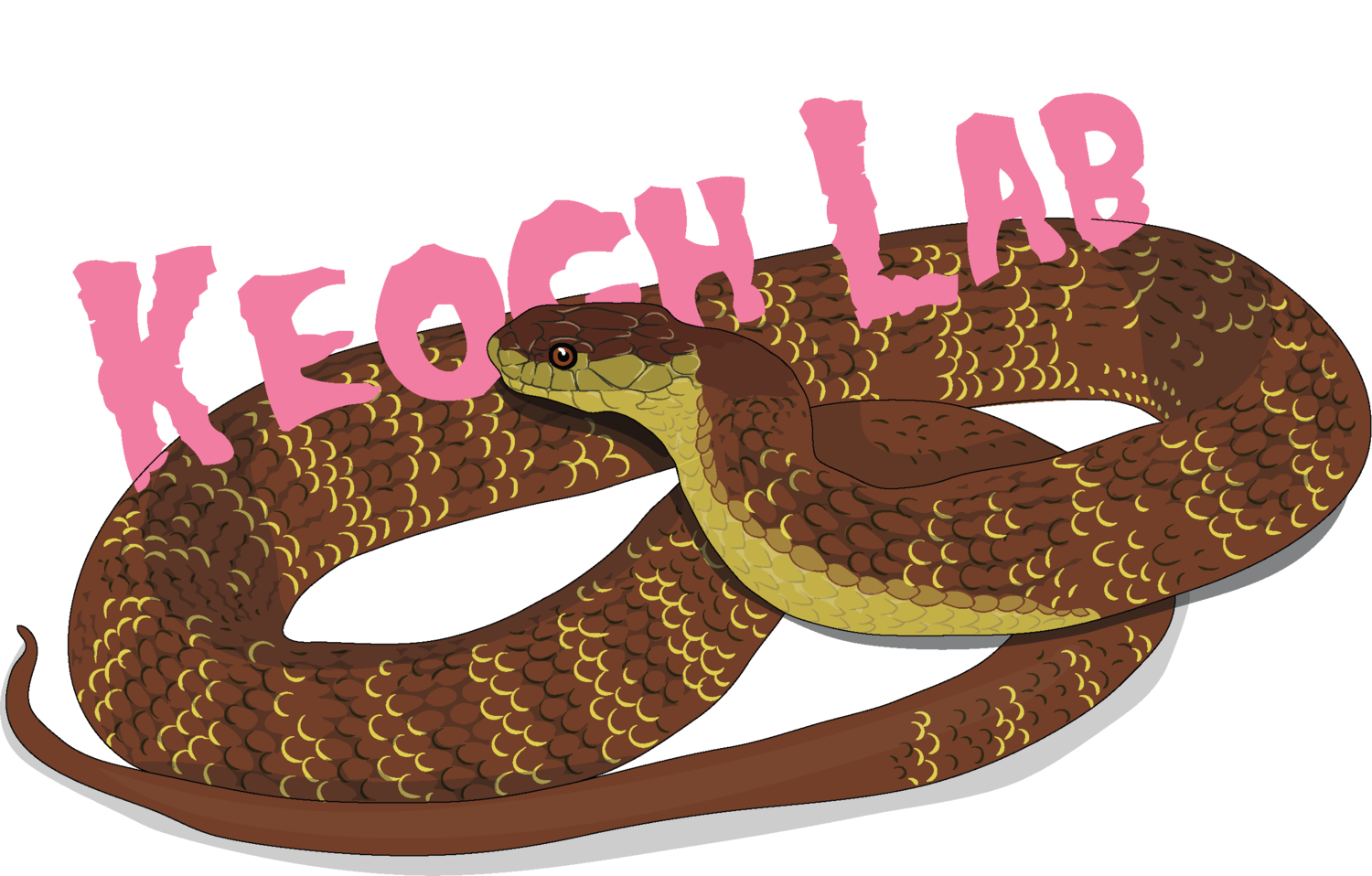What we do
Our primary research interest is the study and evaluation of evolutionary processes and we work mostly on Australian reptile and frog systems because there are amazing and there are a lot of them. We concentrate on four main research areas which are described below. Of course there is overlap between these research themes, particularly in some of the molecular methods used to tackle questions. Check out our lab publications to get a better feel for what we do.
Molecular Phylogenetics, Phylogeography and Conservation Genetics. Our bread and butter research is molecular phylogenetics and all that that entails - including seeing our results through to taxonomic revision and description of new species. Virtually all of our ARC funded research is to develop big molecular phylogenies and then use these phylogenies to answer cool evolutionary questions. Our interests span higher level phylogenetics, species level phylogeography and also phylogenetic approaches to comparative biology, conservation genetics and taxonomy. Most of our work is now done at the genomic scale (phylogenomics) and we make extensive use of SNP genotyping for population and species level studies.
Comparative Evolutionary Biology. One of our main drivers of building big phylogenies for species and populations is to then use them to study how traits evolve. We now have a number of projects going on in the lab where we are trying to take advantage of many years of hard phylogeny generating and apply them, and new phylogenetic comparative methods, to address a range of cool topics including the evolution of morphological traits, behaviour, colour and distributions.
Behavioural and Molecular Ecology. We mostly work on mate choice, mating systems, social structure and anti-predator behaviour in both the field and the lab and we use SNP genotyping to do paternity testing. We have done a lot of work on the southern water skink, Eulamprus heatwolei, African flat lizards, Platysaurus broadlyei, Mosquito fish, and various species of Pseudophryne frogs, including northern corroboree frogs, Pseudophryne pengilleyi.
Natural History and Conservation Biology. We are interested in basic natural history and what it can tell us about the ecology, evolution and behaviour of species. Much of this research is based on dissection and measurement of museum specimens - a greatly under utilised biological resource. Almost all of the members of our lab end up spending a lot of time in museums. We also use this information, and field and lab based studies, to address conservation issues of threatened and endangered animals.
Expectations of my lab members: We are a large, productive and happy lab that is doing good science. I find that the best students are those who are serious about their science and careers, whether they be in academia or other areas of biology. Therefore, I have high expectations of all the people in my lab to make sure that we (including me) are getting the most out of our work interaction and experience. I have outlined these minimum requirements below so that you know what you will be getting yourself into before you approach me as a potential lab member. If you believe you cannot meet these minimum expectations, then don't ask me to supervise you. I'm serious about this and I'll ask you (and your referees) about each of these expectations before I agree to anything.
I expect my students to be professional and dedicated to their research project. First, science is fun and interesting. Second, I and the other members of the lab will invest considerable effort to ensure that you have a good working environment and I will make a considerable effort to provide the resources and advice that you require to successfully complete your project. So, to put it bluntly, I'm not interested in supervising unmotivated people. I will only take honours and masters students who are determined from the outset to do a first class job and put in a first class effort. I will only take PhD students who are determined to come out at the end as an expert in their field and make a real scientific contribution. If I know more about the science behind your project than you do when you are done, then something is very wrong.
It's easy for students to lose motivation for writing papers after taking a well earned break following submitting their thesis, but I believe in the saying "your work hasn't been done until it's published". Therefore, everyone in the lab is expected to actively publish the results of their research as soon as it's done and ready. I will bug you to get the papers done irrespective of whether I have collaborated with you on the research. I encourage PhD students to write papers as they complete chunks of their research and publish along the way. Again, this is critically important to your careers. Our publication record demonstrates the success of this approach.
I expect students to actively try and raise funds to support their research by applying for small grants. This experience and skill is very important for your future careers and the funds will allow you to do your planned research without having to cut corners because of financial restrictions.
One of the most important parts of science is communicating your results, so all lab members have to present their research at scientific conferences. Generally, we all make the trip to the annual meeting of the Australian Society of Herpetologists (ASH) to give talks on our research, and many of us also go to other larger international meetings. I consider giving a talk at ASH a time honoured tradition!
Everyone in the lab is expected to be an active member of the Division of Ecology and Evolution (E&E). This is a great department and you have a lot to gain by interacting with others in our group.




